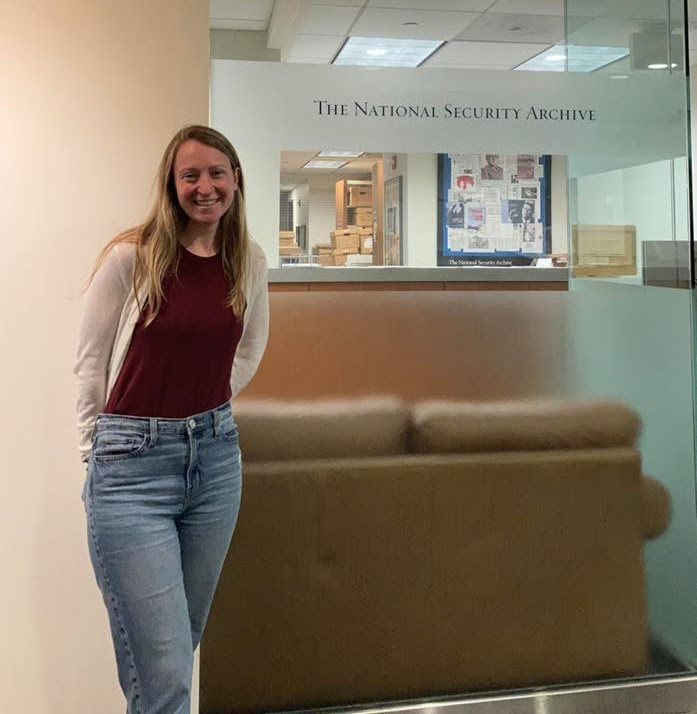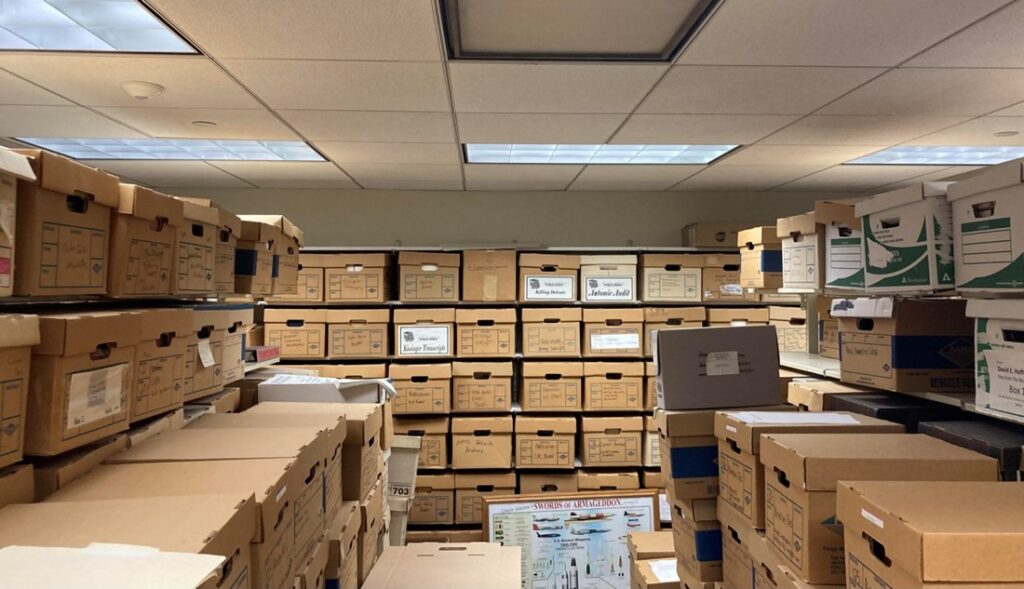Reflecting on the Past to Look Forward: Telling Stories Through Archival Work
Rachel Santarsiero July 20, 2022
For as long as I can remember, I have been a collector—not of precious rocks or playing cards—but of words, ideas, and information. As a kid, I filled journals with new words I didn’t know, curious to commit their definitions to memory. When I heard of a new book I wanted to read, I would write down its title as part of an ever-growing list I hoped to one day reach the end of (a feat I still have not managed to achieve). In my stacks of journals, I listened intently to the radio and to the conversations around me, scribbling down quotes or ideas that resonated with me. Why this commitment to notetaking, you may ask? I believe in the paramount importance of documentation, and the context that solidification of ideas can provide us as we think about the present and look to the future. So, as I made the decision of which agency to pair with for my Scoville Fellowship, I knew the National Security Archive would be the perfect fit.

When I told my friends and family I would be pursuing my fellowship at the National Security Archive, eyebrows raised. “You’re going to be a librarian?” was the common reaction. Well, not exactly. Yes, the Archive is exactly how you’d picture it: a labyrinth of boxes containing documents dating back decades, stacks of books teeming high over desks with titles like The Cuban Missile Crisis Revisited and CIA Subversion in Chile. But, beyond the mazes of boxes and books, something else is happening. You can’t see it, but there’s an indefinable potential energy that each of us is steadily, deliberately, unearthing small puzzle pieces of information that we hope will help expand the public’s (and selfishly, our own) understanding of government, its functions, and its decision-making in matters of national security.

Currently, I’m lucky enough to be working on two projects that combine my greatest research interest areas—the Middle East and climate change. The first project is a colossal documentation effort on the Iraq War, focusing on the period from 2004 to 2007. Our goal is to better understand the occupation of Iraq by the U.S. military and coalition forces, the government’s decision to call for a surge in troops, and the beginnings of extremist organizations like al Qaeda in Iraq and ISIS. By sending Freedom of Information Act (FOIA) requests and Mandatory Declassification Reviews (MDRs) to federal agencies, such as the State Department and Department of Defense, building chronologies of events, and interviewing key figures who played a role in the decision-making process, we can better understand the Iraq War and, hopefully, our government’s complicated involvement in military conflicts in the Middle East today.
The second project investigates the government’s convoluted decision-making around the intersection of climate change and security. While the field of climate security is still emerging, the threats that climate change pose to national security have been known for decades. Currently, my colleagues and I are investigating troves of documents, books, and records from federal agencies like the U.S. Coast Guard, Department of Homeland Security, and Department of Energy, as well as their evolving policies and decision-making in the wake of natural disasters, sea-level rise, and migration fueled by climate change. The subject can be bleak. But having an opportunity to work on a project like this has also allowed me to feel a modicum of hope for our future and the fight against climate change. In my research into the history of environmental negotiations, sometimes reading documents dating back to the 1970s and 80s, I’ve come to better understand the multilateral decision-making and agreements that took place to tackle the overwhelming environmental problems of the time—acid rain and the depletion of the ozone layer. Contextualizing the hard work and successes of these negotiations has helped me better understand the type of concerted, multi-pronged effort required to tackle the daunting global environmental problems of today.

The beauty of archival work is in its vastness. Records aren’t dead things. I see them instead as living, breathing vignettes of past moments that ultimately provide a window into strings of complex decision-making, as well as evolving understandings of national security related events. More than this, records provide us with a collection of words, ideas, and information to help us tell stories of a community, preserve a piece of history, and hold people and institutions accountable.
Those outside the world of journalism and academia may not fully grasp the necessity of this work, but the daily tasks of sending FOIA requests, researching key figures in historical decision-making—some recent, some long passed—indexing documents, and analyzing the past are our best hope for contextualizing the present and generating comprehensive solutions for the future. Although I have only worked with the Archive for four short months (mere seconds in archival time), I feel a deep-rooted appreciation for this incredibly incremental, but important, work. I’m excited to carry the skills I learn from the Archive, and the community of peacebuilders and policymakers I’ve built through the Scoville Fellowship, into my future career in national security and beyond.
Rachel Santarsiero is a Spring 2022 Scoville Fellow at the National Security Archive
